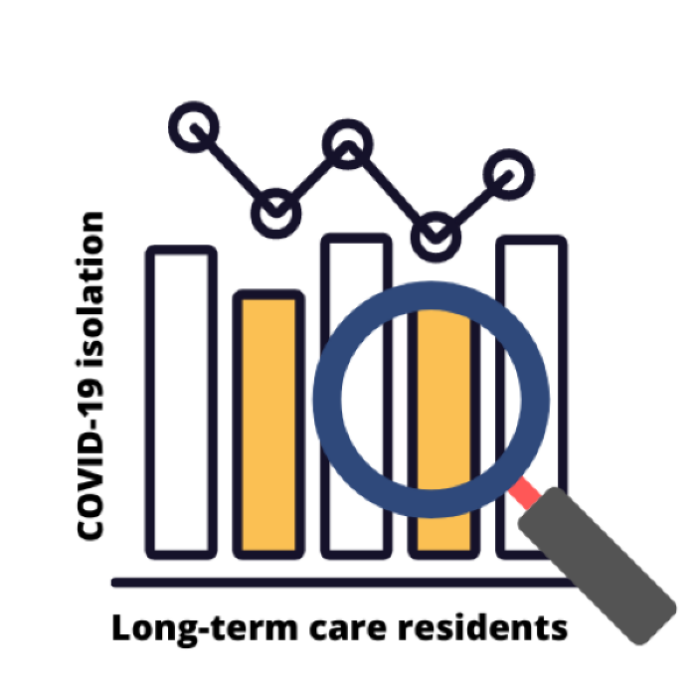Research at UW found that the negative mental health outcomes of COVID-19 isolation on long-term care residents can be mitigated through data-backed interventions.
Long term care residents have been among the most restricted groups in terms of their COVID prevention protocols. After the virus quickly spread throughout multiple Canadian long-term care facilities in the first wave of the pandemic, isolation and other strong precautions were put in place to protect the vulnerable long-term care residents and to stop the spread as
However, studies have shown that COVID-19 isolation has had a negative impact on the mental health of long-term care residents, as a result of lack of daily interaction and socialization. UW created a research study regarding this issue and discovered that these unfavourable outcomes can in fact be mitigated.
The study was conducted in seven long-term care facilities in New Brunswick, where clinical information systems were used to track changes in resident’s mental health status. The data from these systems proved to be crucial in helping homes to allocate resources, spotlighting what kinds of initiatives have a positive effect on the residents.
The tracking systems were used to keep residents engaged with others and keep their overall mood up. Some strategies used to raise resident morale included window visits with family and video chats – two contactless options to socialize. One of the homes even made a point to hire students to facilitate virtual calls, interact with the residents, and run internal recreation activities. All of these initiatives put in place to intentionally uplift the residents’ spirits.
As the restrictions in long-term care facilities continue to mount, this data found from the status tracking systems can be taken into account by policy makers. In particular, they can examine the data to implement better management strategies in the future to support the mental health of residents and prevent the virus from spreading.
John Hirdes, the principal investigator of the study and a professor at the School of Public Health and Health Systems, urges that there is an important balance between quality of life and physical health. By using the tracking systems, policy makers can get closer to understanding how to strike this balance for residents.
Seven francophone long-term care homes were also studied by the researchers, using a standardized assessment interRAI long-term care facility (LTCF), to evaluate the outcomes of certain strategies aimed to create improvement on mental health (like the ones mentioned above). The researchers looked at 4,209 assessments from 765 residents between January 2017 and June 2020 and reviewed the changes in mental health over time. One factor to keep in mind is that these facilities were not experiencing COVID-19 deaths like Ontario and Quebec.
After implementing these strategies, the seven homes that were studied in New Brunswick showed that depression, delirium, and disruptive behaviour either stayed the same, or in some cases, decreased.
This study highlights that by implementing thoughtful strategies in long-term care facilities, the negative mental health outcomes of COVID-19 isolation can be controlled and potentially improved. By continuing with the initiatives such as socially-distanced visits and consistent video calls, the negative mental health outcomes of residents can be mitigated. Homes can also take these findings into consideration and create other strategies for more interaction between residents and others, such as more organized activities internally and more opportunities to socialize safely.
The study, “Evaluating the Effect of COVID-19 Pandemic Lockdown on Long-Term Care Residents’ Mental Health: A Data-Driven Approach in New Brunswick,” was published in JAMDA and authored by Caitlin McArthur, Margaret Saari, George Heckman, Nathalie Wellens, Julie Weir, Paul Hebert, Luke Turcotte, Jalila Jbilou and John Hirdes.






























